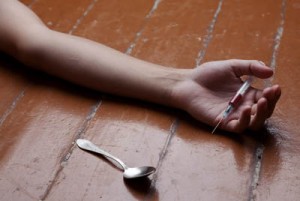 Lately there’s been a lot of discussion and news coverage of naloxone (also known as Narcan). This is a drug that can be administered to a person who has overdosed on opiates (derived naturally from opium) or opioids (synthetic opiates). These include heroin, morphine, OxyContin, Vicodin, methadone, and many other pain medications. There are various ways to administer naloxone, including a device that pretty much automatically injects naloxone if you just hold it against the body. It even has a voice that gives you instructions. Another type of naloxone administration will send a jet of the drug up a person’s nose.
Lately there’s been a lot of discussion and news coverage of naloxone (also known as Narcan). This is a drug that can be administered to a person who has overdosed on opiates (derived naturally from opium) or opioids (synthetic opiates). These include heroin, morphine, OxyContin, Vicodin, methadone, and many other pain medications. There are various ways to administer naloxone, including a device that pretty much automatically injects naloxone if you just hold it against the body. It even has a voice that gives you instructions. Another type of naloxone administration will send a jet of the drug up a person’s nose.
The fact is that in most cases naloxone will bring a person out of an overdose in just a couple of minutes. It reverses the effects of the narcotic which slows down a person’s breathing to the point of death when too much of the drug has been ingested. Time is always an issue when you are trying to save someone’s life. You have to reach him (or her) before he is too far gone.
City and state governments have been tussling over whether or not police and other first responders should have these devices for providing naloxone. I think the answer is pretty straightforward. If a person is ever going to have a chance to go to rehab and build a new sober life, he must be brought back from the point of death to arrive there at all.
It’s possible that some people who are against providing naloxone to first responders have little or no experience with serious opiate or opioid drug addicts. Some people sadly might still have the opinion that addicts somehow “asked for it,” or are worthless people who were destined to be junkies. When you work in drug rehab, you know how untrue that viewpoint is. One sees how good fathers and mothers or talented people or just good-hearted people, often very young persons, had some unfortunate friends or made some stupid choices and then got trapped. One also sees that when you clean up the body and help people develop life skills and, perhaps most importantly, recover their personal integrity, they once again can present themselves to their friends and family and can act as good, worthwhile, valuable people.
Drug rehab works. The majority of people will respond to a good program. That doesn’t necessarily mean that every one will stay sober forever, but it means that most really want to be sober and they will respond to help. I’ve only seen a small number of people who truly rejected every kind of help.
Our communities need all our good people, all our good citizens. And if giving these naloxone devices to our first responders means more people can arrive at the door of a rehab, then maybe this should be an option.